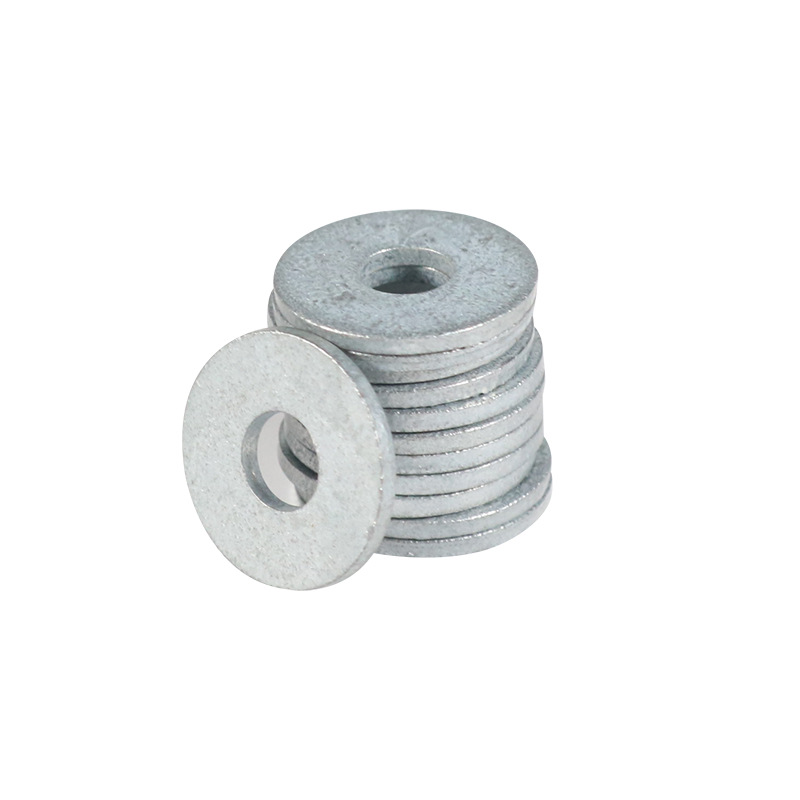

m4 flat washer
Des . 22, 2024 04:28 Back to list
m4 flat washer
Understanding M4 Flat Washers Essential Components in Hardware Applications
Flat washers, specifically M4 flat washers, play a crucial role in various mechanical and structural applications. These small, yet significant, components are often overlooked but are vital in distributing loads, preventing wear and tear, and ensuring the stability of fastenings. In this article, we will explore the characteristics, functions, and applications of M4 flat washers, emphasizing their importance in hardware and engineering projects.
What is an M4 Flat Washer?
The designation M4 refers to a metric measurement, indicating that the washer is designed for use with M4 bolts or screws, which have a nominal diameter of 4 millimeters. Flat washers are typically circular and made from materials such as stainless steel, plastic, or rubber. They can have various inner and outer diameters, with the inner diameter being slightly larger than the bolt’s diameter to allow for easy sliding over the screw or bolt shaft.
Functions of M4 Flat Washers
1. Load Distribution One of the primary purposes of flat washers is to distribute the load across a larger surface area. When a bolt or screw is tightened, the clamping force can create stress points on the material being fastened. The flat washer helps to distribute this force evenly, reducing the risk of damage to the surface and enhancing the integrity of the joint.
2. Prevention of Bolt/Rivet Embedment In softer materials, there is a risk that the bolt or rivet can embed itself into the substrate over time, which can lead to loosening and failure of the connection. Flat washers create a buffer, preventing the fastener from sinking into the base material.
3. Reducing Friction When fasteners are tightened or loosened, friction can cause wear on the surfaces. M4 flat washers can act as a protective barrier that reduces friction between the fastener head and the substrate, which helps maintain the integrity of both components.
4. Vibration Resistance In applications where vibration is a concern, flat washers can help maintain a tight grip between the fastened components. By providing a stable interface, washers can prevent loosening over time, ensuring a more reliable assembly.
m4 flat washer

Applications of M4 Flat Washers
M4 flat washers have widespread applications across various industries. Some prominent uses include
- Automotive In vehicle assembly, M4 flat washers are used in securing parts like brackets, engine components, and chassis assemblies. They contribute to the overall durability and performance of vehicles.
- Electronics In electronic devices, flat washers can be found in circuits and connections where components must remain secure despite thermal expansion and contraction.
- Construction M4 flat washers are commonly used in structural applications, providing necessary support and stability in fastening beams, columns, and other critical components.
- Furniture In furniture assembly, these washers are utilized to secure components while minimizing material damage, thereby extending the lifespan of household items.
Conclusion
M4 flat washers may seem like simple components, but their contributions to load distribution, friction reduction, and vibration resistance are invaluable. Understanding their functions and applications can help engineers and designers select the right components for their projects, ultimately enhancing the durability and performance of their designs. Whether in automotive, electronics, construction, or furniture production, M4 flat washers remain an essential element in the toolkit of those involved in hardware and engineering applications.
In summary, the significance of M4 flat washers cannot be overstated; they are fundamental building blocks that ensure the reliability and safety of mechanical assemblies. When selecting these washers, it's essential to consider material compatibility, size specifications, and the specific demands of the application to achieve optimal results.
Latest news
-
Secure Threaded Fasteners: Steel, Titanium, Wall, Wood Solutions
NewsAug.21,2025
-
Durable Brass Fasteners: Quality Solutions for Every Project
NewsAug.19,2025
-
High-Strength Hot Dip Galvanized Bolts - Hebei Longze Metal Products Manufacturing Co., Ltd.|Corrosion Resistance, Customizable Sizes
NewsAug.18,2025
-
Hot Dip Galvanized Bolts - LongZe | Corrosion Resistance, High Strength
NewsAug.18,2025
-
Hot Dip Galvanized Bolts-Hebei Longze|High Strength&Corrosion Resistance
NewsAug.18,2025
-
High-Strength Hot Dip Galvanized Bolts - Hebei Longze | Corrosion Resistance, High-Strength
NewsAug.18,2025

